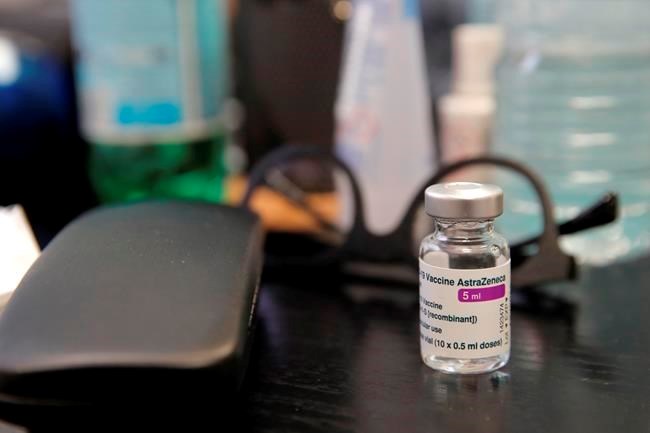B.C.’s decision to extend the interval between first and second COVID-19 shots to four months to protect more people faster has the backing of a national expert panel.
The National Advisory Committee on Immunizations said delaying the second dose of COVID-19 vaccine by four months is acceptable when vaccine supplies are limited.
“NACI recommends that in the context of limited COVID-19 vaccine supply, jurisdictions should maximize the number of individuals benefiting from the first dose of vaccine by extending the interval for the second dose of vaccine to four months,” the committee said in a statement.
The committee said it considered evidence from scientific studies on effectiveness of COVID-19 vaccines in preventing infection, symptomatic disease, hospitalizations and death from COVID-19.
Although studies have not yet collected four months of data on vaccine effectiveness after the first dose, the first two months of “real-world effectiveness are showing sustained high levels of protection,” it said.
B.C. Health Minister Adrian Dix said Wednesday the committee’s position supporting the province’s approach was expected.
Pfizer-BioNTech recommends the second shot be given three weeks after the first, while the recommended gap is four weeks for Moderna, but that interval has been widening as the vaccines have been used around the world and information on the efficacy of the first dose has been reviewed.
Newfoundland and Labrador said it will extend the interval between the first and second doses to four months. Alberta, Manitoba and Quebec said they will delay second doses. Ontario previously said it was weighing a similar move .
Dix said B.C.’s decision was based on the science from the B.C. Centre for Disease Control, the United Kingdom, Israel and other countries.
The extension will free up 70,000 doses in March and hundreds of thousands of new doses in April, Dix said, adding “that number will be more than a million” by the end of June.
“It’s the right decision for the people in B.C,” said Dix, who didn’t specify whether the practice will change when the province has sufficient supply.
The province is expecting delivery next week of 60,000 doses of the newly approved AstraZeneca vaccine, which is expected to be used for essential workers, including first responders, teachers, grocery clerks and poultry workers between the ages of 18 and 64.
The province expects anticipated vaccine shipments will ensure everyone in the province who wants one will have a first dose by July.
NACI said it will continue to monitor evidence on the effectiveness of extending dose intervals and will adjust recommendations as needed.
Dr. Mona Nemer, Canada’s chief science adviser, this week compared B.C.’s delaying of second doses with a “population level experiment,” advising against tinkering with recommendations by Pfizer and Moderna.
But provincial health officer Dr. Bonnie Henry, who has not yet had her second shot, said Tuesday she is confident B.C.’s direction is based on the best science and will protect as many people as possible in a short amount of time to reduce transmission of the virus.
The province announced 542 new cases of COVID-19 on Wednesday, including 31 in the Island Health region.
That brings the total number of active cases to 4,654, of which 246 are hospitalized, including 64 in intensive or critical care.
Island Health says there are 270 active cases in the region, including 161 in the central region, 68 in the north and 41 in the south. The B.C. Centre for Disease Control says 16 people in Island Health are in hospital with COVID-19.
Eighteen new confirmed COVID-19 cases that are variants of concern have been detected, for a total of 200 cases — the majority, 176, are the U.K. variant and the remainder South African. Eleven cases of variants of concern are active cases.
There have been seven new COVID-19 related deaths in the province, for a total of 1,372.



